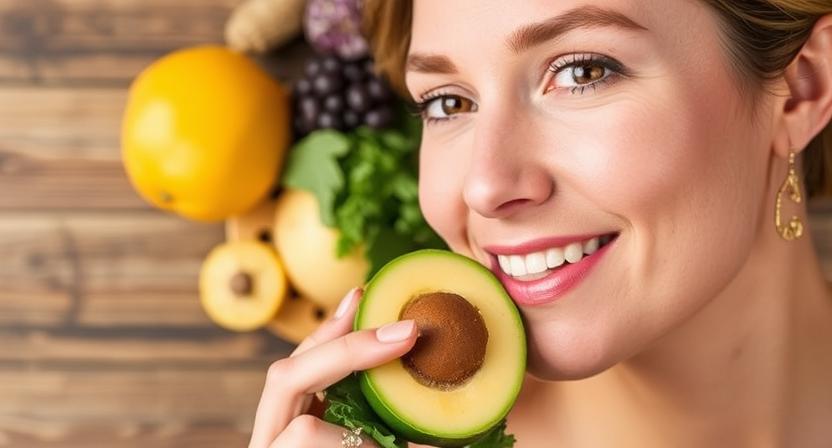Aging is inevitable, but maintaining youthful, glowing skin is within your control. While skincare products play a role, the foundation of radiant skin lies in your diet. Eating the right foods can provide your skin with vital nutrients that fight signs of aging, boost collagen production, and protect your skin from environmental damage. Let’s dive into the top 7 anti-aging foods you should include in your daily meals to keep your skin looking youthful and vibrant.
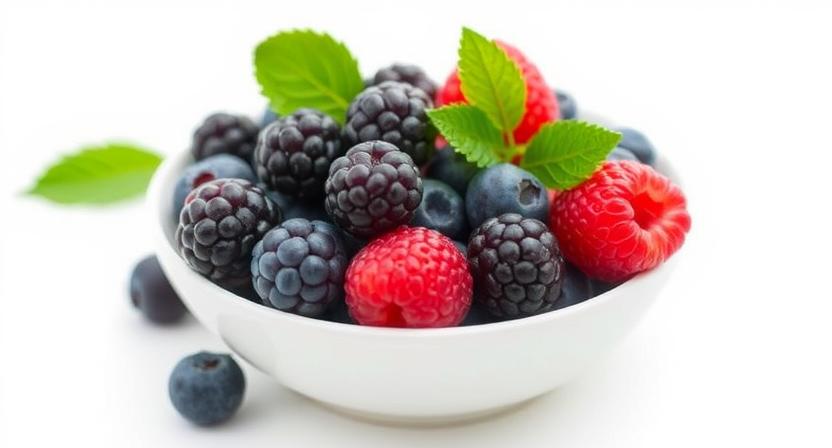
1. Blueberries: The Antioxidant Powerhouse
Blueberries might be small, but their impact on your skin is huge. These berries are packed with antioxidants like vitamin C, flavonoids, and anthocyanins that combat free radicals—unstable molecules that damage skin cells and accelerate aging. Free radicals come from pollution, UV rays, and even stress. Regular consumption of blueberries helps neutralize these harmful molecules, reducing oxidative stress and protecting your skin’s natural glow.
Vitamin C in blueberries is crucial for collagen production, the protein responsible for skin elasticity and firmness. Without enough collagen, skin becomes loose and wrinkled. Blueberries also support skin hydration and repair, making them an essential food for anti-aging.
How to use: Enjoy blueberries fresh as a snack, add them to smoothies, or sprinkle on oatmeal or yogurt for a skin-loving boost.
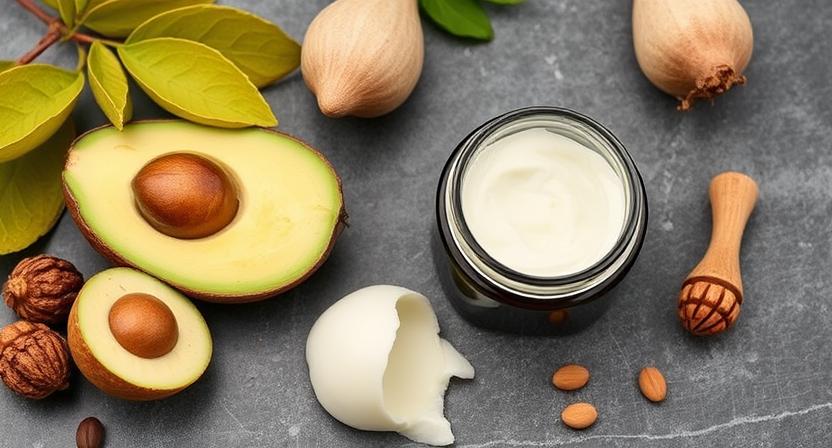
2. Avocados: Nature’s Moisturizer
Avocados are creamy, delicious, and loaded with healthy fats that your skin loves. The monounsaturated fats in avocados keep your skin hydrated, preventing dryness and flakiness which can exaggerate wrinkles. Beyond fats, avocados provide vitamins E and C, both powerful antioxidants that help protect and repair skin cells.
Vitamin E acts as a barrier against environmental damage, such as UV rays and pollution, while vitamin C aids in collagen synthesis and skin healing. Moreover, avocados have anti-inflammatory properties, which can calm irritated skin and reduce redness.
How to use: Add mashed avocado to toast, blend into smoothies, or use as a creamy salad dressing base.
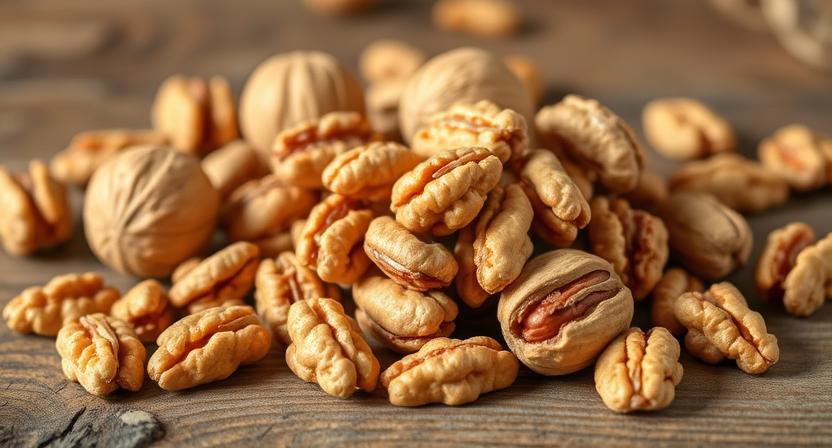
3. Walnuts: Rich in Omega-3s for Elasticity
Walnuts are an excellent source of omega-3 fatty acids, which play a critical role in maintaining skin’s elasticity and moisture. Omega-3s also help to reduce inflammation, which can accelerate the skin’s aging process. They nourish the skin’s lipid barrier, keeping it supple and preventing dryness and roughness.
In addition to omega-3s, walnuts are rich in vitamin E and antioxidants that protect the skin from harmful UV radiation and environmental toxins. Studies suggest that consuming nuts regularly is linked with fewer wrinkles and better skin texture.
How to use: Snack on a handful of walnuts daily or add them chopped to salads, oatmeal, or baked goods.
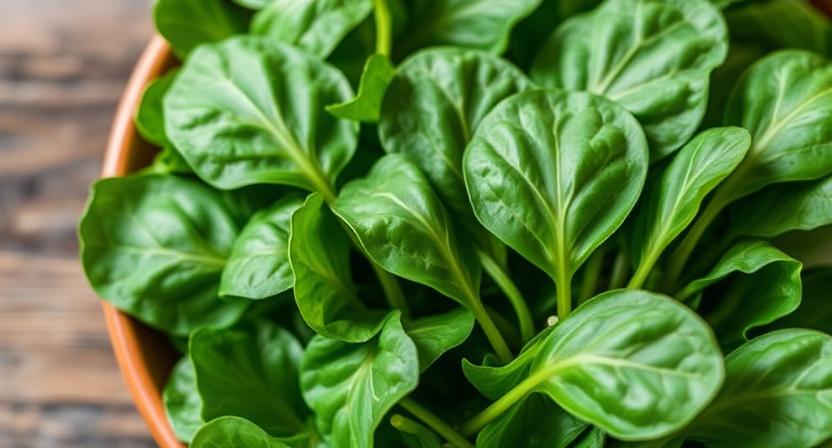
4. Spinach: The Skin-Healing Leafy Green
Spinach and other dark leafy greens are packed with vitamins and antioxidants that benefit the skin in multiple ways. Spinach is an excellent source of vitamins A, C, and K, as well as minerals like iron and magnesium.
- Vitamin A encourages skin cell turnover, helping to shed dead skin cells and reveal fresher, smoother skin underneath.
- Vitamin C is vital for collagen production and skin repair.
- Vitamin K helps reduce dark circles and supports skin healing.
Spinach also contains lutein and zeaxanthin—carotenoids that act as natural sunscreens by filtering harmful blue light and UV rays, protecting skin from premature aging caused by sun exposure and screen time.
How to use: Add fresh spinach to salads, blend it into smoothies, or lightly sauté it as a side dish.
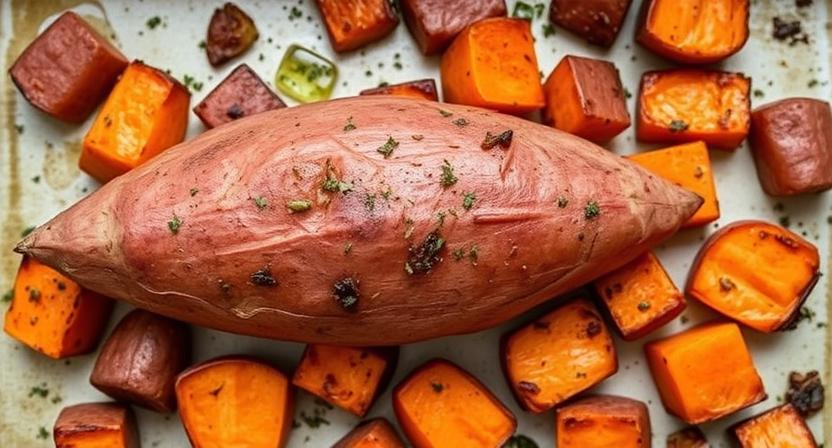
5. Sweet Potatoes: Natural Sun Protection
Sweet potatoes are rich in beta-carotene, which your body converts into vitamin A, a key nutrient for healthy skin. Beta-carotene not only promotes skin cell growth and repair but also acts as a natural sunscreen, protecting your skin from UV damage that can cause wrinkles and age spots.
The antioxidants in sweet potatoes neutralize free radicals and reduce inflammation, helping your skin maintain a smooth, even tone. They also contain vitamins C and E, further supporting skin hydration and elasticity.
How to use: Enjoy roasted, mashed, or as fries—sweet potatoes are delicious and nutritious in any form.

6. Green Tea: The Anti-Inflammatory Elixir
Green tea is more than just a soothing beverage; it’s packed with polyphenols called catechins, which have potent antioxidant and anti-inflammatory properties. These compounds help protect the skin from sun damage, reduce redness, and improve elasticity.
Research shows that regular green tea consumption can increase skin hydration and reduce the signs of aging, including fine lines and wrinkles. The anti-inflammatory effects also calm irritated skin, making green tea a perfect drink for sensitive skin types.
How to use: Sip on hot or iced green tea daily, or use cooled green tea as a refreshing facial toner.
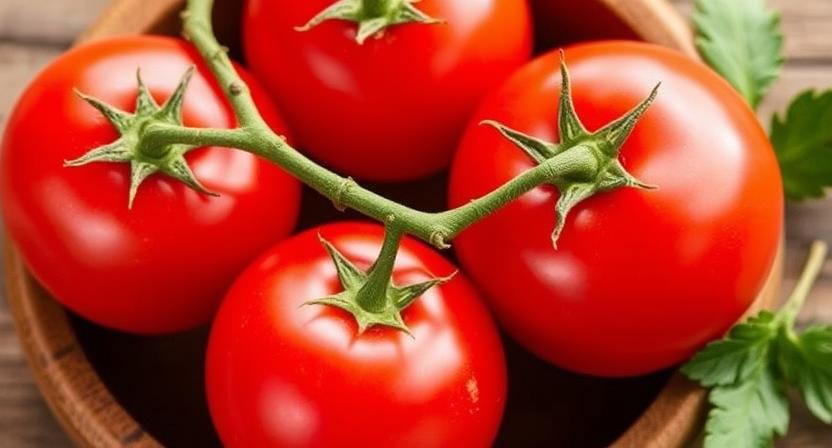
7. Tomatoes: Lycopene for Skin Health
Tomatoes are rich in lycopene, a powerful antioxidant that protects the skin from UV damage and improves skin texture. Lycopene helps increase collagen production, making your skin firmer and more resilient against wrinkles.
In addition to lycopene, tomatoes contain vitamin C and other antioxidants that support skin brightness and repair. Eating tomatoes regularly can help reduce the appearance of fine lines and give your skin a healthy, youthful glow.
How to use: Include fresh tomatoes in salads, cook them into sauces, or enjoy tomato juice for a tasty skin boost.
Bonus Tips for Youthful Skin
- Hydrate: Drinking plenty of water flushes out toxins and keeps your skin plump.
- Limit sugar: Excess sugar can break down collagen, speeding up aging.
- Skincare routine: Pair your diet with good skincare habits, including sun protection.
- Sleep well: Quality sleep is essential for skin repair and regeneration.
Eating a variety of these anti-aging foods regularly provides your skin with essential nutrients to fight wrinkles, improve elasticity, and protect against environmental damage. Embrace these natural foods for radiant, youthful skin that glows from within!
